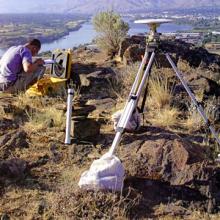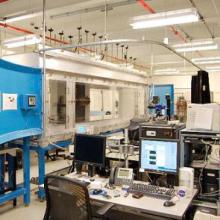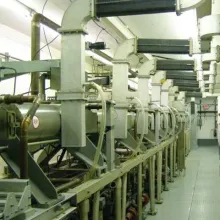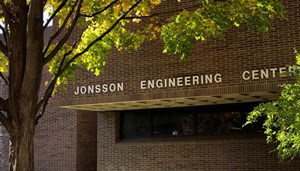Rensselaer’s School of Engineering is home to seven research centers. Because research at RPI is by its nature multidisciplinary, faculty from throughout the Institute participate in these seven centers, and RPI engineers conduct research across the Institute. For information on all Rensselaer research centers and institutes, visit the Office of Research.

Center for Earthquake Engineering Simulation (CEES)
CEES is a multidisciplinary research center that provides internal and external researchers a state-of-the-art facility to conduct analytical, experimental, analytical-experimental, and multidisciplinary research within, and outside, earthquake engineering.

Center for Flow Physics and Control (CeFPaC)
CeFPaC conducts research in flow physics, prediction, modeling, and control. The center focuses on a combination of basic research aimed at verifying or developing theories for fluid dynamic behavior, and the application of these theories toward controlling flows.

Center for Infrastructure, Transportation, and the Environment
The Center for Infrastructure, Transportation, and the Environment (CITE)'s vision is to become a national and international leader in research, education, outreach, and technology transfer in the areas of infrastructure, transportation, and their linkages to the environment.

Center for Ultra-wide-area Resilient Electric Energy Transmission Networks (CURENT)
This interdisciplinary center brings together a consortium of academia, industry, and national laboratories to tackle the grand challenge of enabling a more intelligent, resilient electrical grid that accepts more renewable energy sources. CURENT is jointly funded by NSF and the U.S. Department of Energy. It is the first ERC dedicated to power system transmission.

Gaerttner Linear Accelerator Center (LINAC)
The Gaerttner Linear Accelerator Center (LINAC) is one of two unique facilities available in the Nuclear Engineering program at RPI and has been engaged in active research continuously for over 50 years. Current areas of research at the LINAC include thermal reactor physics, photoneutron reactions, neutron cross sections, radiation effects in electronics, and production of medical isotopes. This laboratory has well served government and industry in numerous applications where it has provided a unique and highly intense radiation environment.

Lighting Enabled Systems and Applications
Through a fusion of advanced light sources, sensors, and integrated control systems, the Center will create revolutionary, intelligent “Lighting Systems that Think” to promote improved health, productivity, and well-being, while delivering greater energy savings.
